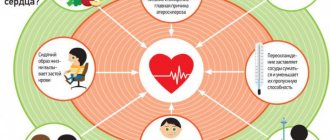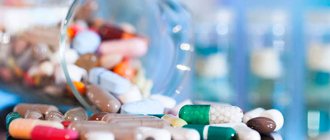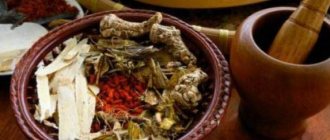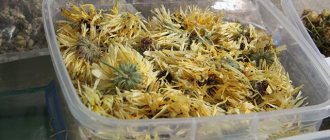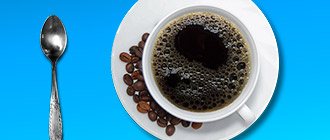The effect of cognac on the human body has been studied by scientists from many countries around the world. Their research revealed the ability of the drink to have a beneficial effect on the human heart and blood vessels.
There are a large number of myths among people that attribute various properties to this type of alcohol.
Drinks containing alcohol prepared using special technology in the French province of Charente can be called cognac. Cognacs produced elsewhere are classified as brandy.
Content:
- The influence of alcohol on indicators
- For hypertension
- At low pressure
- Related factors
- Possible consequences
- Compatibility of alcohol and antihypertensive drugs
- How to stop a rise
The most frequently asked questions to narcologists are whether alcohol increases or decreases blood pressure, and how alcohol affects existing hypertension or hypotension. The widespread belief that under the influence of ethanol blood vessels dilate, helping to normalize blood pressure, is incorrect. Conducted research and collection of statistical data indicate that in most cases of alcohol dependence, hypertension is diagnosed. A trend is also observed in people who regularly drink alcoholic beverages.
A little about the drink itself
Cognac is a very popular strong drink. It is consumed both at family celebrations and at corporate parties, and is given as a gift to bosses, friends and relatives.
This legendary drink is made from aged white wines. It is valued for its exquisite taste, which is combined with strength. It has long been noted that this type of alcohol improves not only mood, but also well-being. Small doses of cognac can stabilize blood pressure. If you drink 50-70 grams, you will feel your body relax and a pleasant warmth spread throughout your body.
If you drink a few glasses of cognac in company, you can reduce tension, create an atmosphere of comfort, and make the holiday soulful. In this case, this brandy has a calming effect. Coming from the cold, it’s enough to sip a little strong drink to warm up and turn on the body’s protective properties.
The influence of alcohol on indicators
To understand the issue, consider the effect of ethanol on blood vessels. In a healthy person, small doses lead to a slight decrease in blood pressure. The effect is due to the toxic effect on the neurons of the vasomotor center of the medulla oblongata, which is responsible for the tone of arteries, veins and capillaries. Temporary relaxation of the vascular walls occurs, thereby increasing the internal lumen. The action is felt as a general relaxation, a spreading of warmth throughout the body.
When drinking a large volume, the opposite reaction develops, causing vasospasm. The vascular lumen sharply narrows, blood flow slows down, accumulating in certain zones, and a sharp increase in indicators is observed. An addict or drinker with a history of hypertension may develop a hypertensive crisis. With systematic abuse, unexpected changes are likely.
Pathologies caused by alcohol
The systematic influence of alcohol on the cardiovascular system leads to the development of a number of diseases:
- hypertensive crises,
- atherosclerosis,
- anemia,
- chronic renal failure,
- hypertension,
- acute coronary insufficiency,
- physiological changes in the heart.
Alcohol-containing drinks are responsible for increasing mortality among young people. Young people experience stroke, heart attack, and coronary heart disease.
Chronic alcoholism, as a consequence of the myth about improving the condition of blood vessels
Some people think that drinking small portions of alcohol only benefits blood vessels. It is not right. What actually happens is this:
- alcohol relieves stress, but the next morning the person has a hangover, accompanied by severe headaches,
- alcohol relieves pain, but after some time the pain returns and becomes stronger,
- alcohol serves to lower blood pressure, but the blood vessels wear out and the circulatory system is destroyed.
People who regularly drink alcohol report positive effects of alcohol in the presence of vascular diseases. But they must remember that forced and frequent changes in the lumen of the vessel cause disturbances in the speed of blood circulation.
The consequence is a sharp increase in blood pressure, tinnitus and severe pain in the head.
For hypertension
In case of illness, alcohol causes jumps up to critical levels. The mechanism is as follows: relaxation is followed by a sharp spasm and the release of stress hormones into the blood. The heart rate accelerates, the organ pumps blood faster, thereby raising blood pressure.
Frequent consumption, especially in large quantities, is strictly contraindicated for hypertensive patients. Changes in blood flow caused by periodic relaxation and spasms worsen the condition of the body. Lack of oxygen and nutrients has a detrimental effect on health.
This is especially noticeable in people suffering from alcoholism, when there is a lack of vitamins and minerals. Not only does the risk of cardiovascular pathologies increase, but also premature wear and tear of the entire system.
Rules for safe use
You can improve your health with the help of cognac only by following the rules for its use.
The drink is drunk:
- in an amount of up to 50 ml per day (the dose is calculated based on the person’s body weight);
- not eating fatty and salty foods (these foods have the ability to retain fluid in the human body, which leads to increased blood pressure);
- in the absence of chronic diseases.
Exceeding the permissible dose of alcohol leads to a deterioration in a person’s health.
At low pressure
With hypotension, the walls of blood vessels are dilated and are in a state of decreased tone. Under the influence of small doses of ethyl alcohol, the muscles of the vascular walls relax even more, thereby reducing the pressure of blood flow. The blood supply to the extremities and brain deteriorates, and the ensuing hypoxia causes drowsiness. It is for this reason that a drunk person feels numbness in his legs and dizziness.
Regular drinking leads to increased pressure and even greater stretching of the walls. The accumulation of cholesterol and changes in blood composition provoke the formation of blood clots and atherosclerotic plaques. 5-6 hours after a heavy libation, dehydration of the body occurs, hemoconcentration of the blood increases, that is, its thickening. In this regard, the formation of blood clots and the complete deterioration of blood supply, especially small capillaries, increases.
Cause of vasoconstriction
At the initial stages, alcohol causes a decrease in headaches. This is a consequence of the fact that vascular spasms are relieved, and the lumen of the bloodstream increases. But this effect does not last long. When the effects of alcohol wear off, the pain returns with renewed vigor , and the pain can become significantly stronger.
Some people drink again, which is absolutely wrong. Headaches can only be relieved by taking medications, but not by drinking alcohol.
Harm of alcohol to blood vessels
Alcohol leads to dysfunction of the cardiovascular system. The disorder is caused by an excess of substances such as adrenaline and norepinephrine. Despite the increased work of the heart, red blood cells in the bloodstream stick together. Blockage of the lumen of the vessel may occur. A specific mesh appears on the patient’s skin.
The capillaries of the brain cannot cope with such severity and die. This is considered the cause of micro-strokes , which are often confused with hangover syndromes. Cells of the central nervous system die off with regular libations, which leads to a worsening of the situation.
Related factors
In addition to the dosage, the patient’s age, existing diseases and even the type of drink are affected. Under the age of 40, changes are practically not felt even after prolonged use. Over 40 and up to 55 years, 67% of people experience symptoms of blood pressure surges. In old age, almost every person who drinks has problems with the functioning of the cardiovascular system.
Existing pathologies of the heart and blood vessels, as well as the kidneys and endocrine system, greatly increase the risk of hypertension with systematic use and the presence of chronic alcoholism . Also, aggravating factors are considered to be a tendency to blood clots, elevated cholesterol levels or diabetes mellitus, intracranial hypertension.
There is an opinion that cognac relieves spasms and normalizes blood flow, but the temporary effect has already been written above. Taking wine in therapeutic doses is also not justified. Even the consumption of a small amount does not go unnoticed and causes damage to health.
It is better not to drink alcohol if you are obese and prone to swelling. This will only make the condition worse.
Traditional medicinal recipes
Although cognac itself is not the best remedy for strengthening blood vessels, it is an excellent basis for folk recipes. The most effective among them are:
- cognac tincture with cranberries;
- tea with cognac and cinnamon.
Cranberry tincture
Cranberries are good for the heart and blood vessels, as they contain a large amount of vitamin C and phenolic antioxidants, which lower cholesterol levels and strengthen blood vessels. Prepare a cranberry cleanser as follows:
- Rinse 600 grams of cranberries under running water, place on a paper towel and mash a little (covering with another towel on top);
- then transfer it to a jar, cover the top with gauze and leave it like that for a day;
- Next - transfer the berries to an enamel bowl, add about 1 - 1.5 glasses of water and heat in a water bath until boiling;
- after cooling, strain through cheesecloth;
- add 500 milliliters of cognac to the resulting broth.
Take 30 milliliters before dinner . The course is at least 2 weeks.
Also watch this recipe video:
The remaining berries should not be thrown away. It is better to pour 1 liter of vodka over them and let them brew for 1 week in the cellar or in the refrigerator. The resulting tincture is no worse than expensive wine.
Adding to tea
It is considered the best tonic for blood vessels, and also normalizes blood pressure. Easy to prepare:
- brew your usual tea (you can also use green or fruit tea);
- add ¼ teaspoon of cinnamon to 1 glass, 2 teaspoons of cognac;
- let steep for 10 minutes and drink warm.
Drink no more than once a day to prevent cardiovascular diseases.
The combination of cinnamon and honey is also extremely beneficial for the cardiovascular system.
Possible consequences
Among the heart pathologies caused by systematic abuse, the most common are:
- chronic heart failure;
- alcoholic cardiomyopathy;
- organic and functional myocardial lesions, ischemic heart disease;
- arrhythmias.
The danger is posed by changes caused by prolonged binge drinking or a state of abstinence, during which severe complications develop.
- Ischemic strokes, accompanied by impaired cerebral circulation, leading to partial paralysis and disability.
- Arrhythmias, manifested either by a rapid heartbeat or a slowdown.
- Hypertensive or hypotensive crises are cases of sustained decrease or increase, tolerant to the action of drugs.
- Myocardial infarction, causing partial impairment or loss of pumping function.
- Transient ischemic attacks are cerebral circulatory disorders that cause neurological abnormalities: speech disorders, loss of memory or motor functions, paresis.
Alcohol increases and sometimes decreases blood pressure. In addition, it neutralizes the effects of drugs to normalize blood pressure. Because of this, during horse racing, the attack cannot be controlled with medication.
Doctors' opinion
High blood pressure can trigger the development of stroke, heart attack and many other life-threatening conditions. There is a very dangerous trend: people prone to hypertension, instead of looking for its cause, simply strive to lower their blood pressure. Even if they succeed for a while, the cause of the pathology does not disappear anywhere and can again provoke hypertension.
Hypertension can cause damage to many organs and systems. The blood vessels, brain, heart, kidneys, and fundus are affected. In advanced conditions, coordination is impaired, a person constantly experiences weakness in his legs and arms, and his vision decreases. Over time, memory and intellectual abilities may deteriorate. This is a direct path to a stroke.
Compatibility of alcohol and antihypertensive drugs
If you are diagnosed with hypertension and take daily medications, you should stop drinking strong drinks, since ethanol reduces the effectiveness of the drugs. On rare occasions you can drink a glass of good wine.
The use of most antihypertensive drugs during or after drinking any alcoholic beverages is also prohibited. A proven medicine, when interacting with ethyl alcohol, can give an unexpected side reaction.
Carefully read the instructions for the drug for interactions, since taking certain medications together is potentially dangerous to health and life.
Changes in blood composition
Once in the systemic bloodstream, ethyl alcohol corrects the composition of the blood. Red blood cells suffer the most from all components of biological fluid. Ethanol destroys their outer shell, which increases the risk of microthrombi formation.
Blood sugar levels drop after drinking. As a result, there is a jump in cholesterol. A large amount of waste appears, which is one of the causes of alcohol intoxication.
It is important to understand that not a single milligram of alcohol passes through the body without leaving a trace. Therefore, doctors never tire of repeating: alcohol causes irreparable damage to health. You should try to take it as rarely as possible, or even better, stop using it completely.
How to stop high blood pressure during abstinence
When drinking strong alcohol, sharp changes are characteristic. What to do when alcohol lowers or increases blood pressure during withdrawal:
- measure indicators;
- if a jump of more than 20% of the individual norm is detected, call emergency medical help;
- if the jump is less than 20%, you need to drink more fluid to prevent dehydration.
Taking sorbents - polysorb, enterosgel, activated carbon will help remove toxins faster.
If you have existing diseases, you should stop drinking alcohol. A timely visit to a narcologist will help with this.
Literature:
- Risk factors for arterial hypertension / V. R. Weber, B. B. Fishman; Feder. education agency, Novgorod. state University named after Yaroslav the Wise, Novgorod. scientific Center of the Northwestern Branch of the Russian Academy of Medical Sciences. — St. Petersburg: Novgor. state univ., 2005 (St. Petersburg: Printing house “Science”). — 207 p.
- Hypertension. High blood pressure disease [Electronic resource]: blood pressure control, non-drug methods for treating hypertension, lowering blood pressure with the DASH diet: 12+ / P. A. Fadeev. - Moscow: Eksmo, 2014. - 430 p.
- Alcohol and arterial hypertension / Ostroumova Olga Dmitrievna, Saperova Ekaterina Vladimirovna / 2014 / Rational pharmacotherapy in cardiology.
- Changes in the daily blood pressure profile under the influence of systematic alcohol consumption / Zhirov I.V., Ogurtsov P.P., Shelepin A.A. / 2000 / Bulletin of the Peoples' Friendship University of Russia. Series: Medicine.
Brief effects of alcohol
Alcohol is quickly absorbed by the digestive tract and passes into the bloodstream. The vessel wall relaxes. This parallels the slowing down of neurotransmitter synthesis by the nervous system.
After some time you can note:
- expansion of the lumen of blood vessels and partial immobilization of their walls,
- decreased tone of vascular tissues,
- lowering blood pressure levels.
This state does not last long, and then the reverse reaction occurs.
